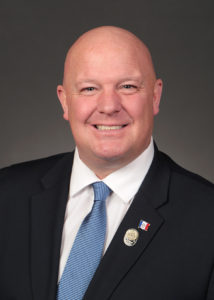The regular 110-day long session has ended, but the Iowa Legislature is still working to complete a budget and tax plan. In order to complete a budget, we need a reliable prediction of revenues. The Senate is prioritizing broad-based tax cuts as a plan to lower the burden of state government on Iowans, spur economic growth, and continue Iowa’s streak at the top of every state ranking for fiscal discipline.
Central to this effort is removing the last triggers that hold back the final rate reductions of the 2018 tax cuts. The Senate Republicans believed then, as we do now, that tax cuts spur the economy and you always end up with increased economic activity and the increased tax revenue to go with it. Delaying tax cuts as were required by the House in 2018 limited the effectiveness of the bill, left Iowa without some of the expected additional investment and employment that would have happened. The triggers were based on economic growth and only one trigger was estimated to barely missed this year. The Senate would prefer to not wait until next year to see this happen. The House did not address it during the first 110 days, but has introduced legislation this week to remove the triggers.
Another major move being considered by the Senate is to remove the mental health property tax levy from county taxpayers and replace that funding with state General Fund dollars collected from sales and income taxes. Mental health services are not property services and Iowa is the only state in the country to pay for mental health services with property taxes. It is more appropriate for sales and income taxpayers to cover the expenses for mental health. This will be funded by phasing out the property tax backfill over 5 years for larger, quickly growing counties and 8 years for smaller, rural counties. Together, these two changes will provide a more common-sense flow of tax collection to tax users. This bill also makes it easier for Iowans to track where their money goes.
A third big difference is a three-year repeal of Iowa’s inheritance tax. Only six states still use the old death tax. The Senate proposal is to lower the rate over three years starting at January 1, 2021, and fully repeal the tax in 2024. The House proposed a 10-year phase-out.
As part of the Ways and Means Committee, I will be involved in moving this tax package through subcommittee and committee. I thank you all for the opportunity to serve Senate District 9 and be in a place where I can lower the tax burden on hard-working Iowans. I am optimistic we can find common ground to ease that burden.

State Senator Jason Schultz



